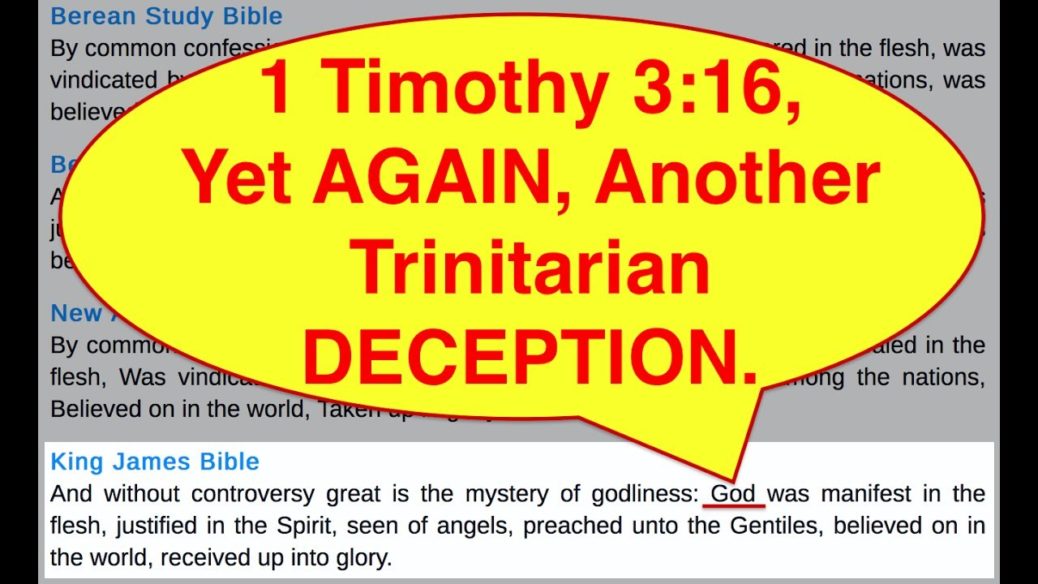1 Timothy 3:16
And without controversy great is the mystery of godliness: God was manifest in the flesh, justified in the Spirit, seen of angels, preached unto the Gentiles, believed on in the world, received up into glory.
This scripture infers that Jesus is God. Although you could argue that even we should manifest God in our lives knowing full well we are not God. Regardless, this verse is certainly a verse that Trinitarians use as a proof verse, and to the untrained eye, people may well accept that Jesus is God based on this verse alone.
But is this all there is to this matter.
Apparently this verse is controversial because most other translations do not say “God was manifest in the flesh”, rather they say “He was manifest in the flesh”.
So what is going on here. Why does the KJV say ‘God’ and most other translations say ‘He’?
I found this explanation in and thought it would be helpful to share it.
http://answers.yahoo.com/question/index?qid=20080728123800AALVzER
Thank you so much for this question. It is a very interesting one.
A few weeks ago, I inquired of a Greek translator who often posts on this site, asking him this very same thing. He kindly and carefully explained to me that, first off, one must understand the nomina sacra (sacred names). He explained that these are abbreviations, in early manuscripts, of certain names and titles.
In ancient manuscripts 1 Timothy 3:16 had the word “os” which looks like: “OC” and means “he”.
The nomina sacra of God looks like OC but it has a horizontal line through the middle of the O and a long horizontal line over both letters (as Abernathy, above, explained).
The Greek translator continues, and I quote: “In one old manuscript (Codex Alexandrinus) it seems to the nomina sacra, but an analysis of the manuscript demonstrated that the two horizontal lines were added centuries later.
Many late manuscripts have the nomina sacra, but all manuscripts earlier than about 800AD have OC “He”
So “He was manifest in the flesh” is supported by all the most ancient manuscripts, “God was manifest in the flesh” has no attestation before 800 AD.”
End quote.
Hannah J Paul


